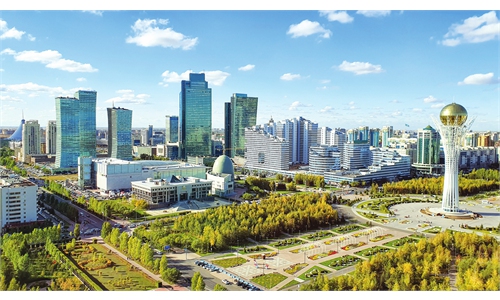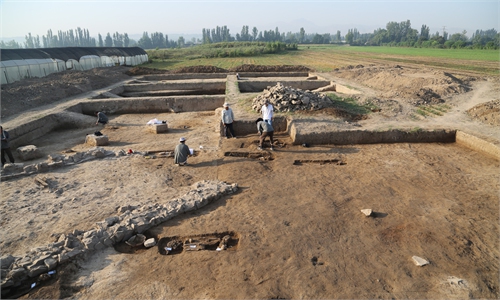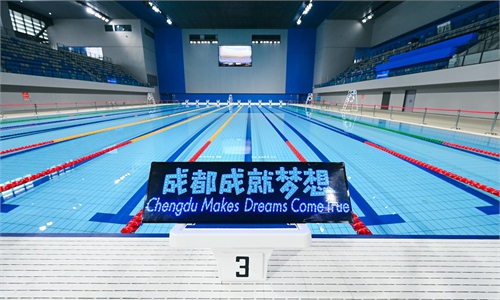BRI the most important international initiative in the last decade: Italian scholar

Tourists pose for photos at the Piazza di Spagna on Christmas Day in Rome, Italy, on Dec. 25, 2022. Italy is expected to have its warmest holiday season in at least 50 years, according to meteorologists, more anomalous weather in a year filled with unusual weather patterns. Photo: Xinhua
Editor's Note:
This year marks the 10th anniversary of the China-proposed Belt and Road Initiative (BRI), a global cooperation platform that demonstrates China's vision and provides solutions to the reform of the global governance system and multifaceted challenges. Against this backdrop, the Global Times is publishing a series of interviews with renowned scholars, think tanks, and financial institutions, sharing their insights and understanding of how the initiative has earned global recognition and reshaped global development. This is the sixth installment in the series.
In 2019, China and Italy signed a Memorandum of Understanding (MoU) on BRI, and Italy is also the first and only G7 country to join the initiative. In recent days, discussions on Italy's participation on BRI have been afoot, with the Italian government reportedly signaling that it is reconsidering whether to renew the MoU. Against the backdrop, the Global Times reporter Li Xuanmin (GT) conducted an interview with Prodi Giorgio (G), associate professor of Applied Economics at Ferrara University and visiting senior fellow of the Institute for Global Cooperation and Understanding at the Peking University, who shared his views on the development of BRI, while giving practical suggestions on how the initiatve could be better carried out in Italy as well as Europe. According to Giorgio, BRI has been the most important international initiative in the last decade both in terms of political and economic investments.
GT: The relations between China and Europe seem to be at the crossroads. What is your perspective on the future of China-Europe relations? What is the outlook of bilateral economic ties?
G: We are witnessing a difficult moment. The Ukraine crisis and huge geopolitical tensions are splitting the world in two, and this is never a good idea. If the world would be divided in two, Europe will always stand on the side of Western countries. I am afraid this will affect economic bilateral relations that, otherwise, should be extremely positive, given complementarities and possibilities of mutual benefits. So, our goal should be to avoid polarization to have positive long-term relations as we had in the past.
GT: Europe is undergoing a reflection and debate on its perception and strategy toward China. In your perspective, how could Europe maintain both a neutral position and a strategic autonomy amid increasing rivalry between China and the US?
G: The US is calling for decoupling, Europe has a more nuanced vision. In its EU-China strategic outlook the European Commission published in 2019, it defined China as "simultaneously, in different policy areas, a cooperation partner with whom the EU has closely aligned objectives, a negotiating partner with whom the EU needs to find a balance of interests, an economic competitor in the pursuit of technological leadership, and a systemic rival promoting alternative models of governance."Ursula von der Leyen, President of the European Commission, recently used the word "de-risking" to define the new relation of the EU toward China (but not only China). Being depended for crucial goods from distant countries (and not only in geographic terms) is considered too risky for Europe. The pendulum between economic efficiency and geoeconomic stability now is shifting to the latter.
Of course, Europe has to define its position, not only taking into account its needs but also considering the US decoupling strategy, as we have seen in the case of the chip industry, also EU companies. The capacity of the EU to have its own position and to defend its economic and geopolitical interests is limited by internal divisions, and weakness in developing a common foreign policy not to mention a common defense one. To be more independent we need more European voices.
GT: In 2019, China and Italy signed a MoU on BRI, and Italy is also the first G7 country to join the initiative. What is your comment on the results of bilateral cooperation under BRI, and what is the significance of such BRI cooperation to the EU bloc?
G: From the Italian side, there're some good results in industries like luxury good, and intermediate technologies, but we were expecting higher penetration on Chinese markets and, at macro level, a lower trade deficit. The signing of the MoU was seen also as an opportunity to overcome these problems.
GT: Italy is reportedly considering exiting from BRI. What is your comment on the potential move, and if the country opted to withdraw, how would it impact China-Italy economic cooperation, and how would it impact China-Italy relations?
G: The sign of the MoU on BRI in Italy is much more discussed today, at a time when it has to be renewed, than 4 years ago when it was signed without much discussion. I don't know if the Italian government will confirm it or not, given that part of the Coalition in power today was member of the government at the time the MoU was signed, while other ruling parties were against the government at the time.
I hope in case the MoU is not confirmed that this will not affect bilateral relations. Maybe it could be the occasion to rethink the MoU both in term of content (the first one was full of good will but not very operative), but also it should be implemented at a higher level in Brussels. I am afraid this is only a wishful thinking.
GT: This year marks the 10th anniversary of BRI. How's contribution of the initiative to the global growth, and in particular to Europe?
G: BRI has been probably the most important international initiative in the last decade both in terms of political and economic investments. In a moment when the US, especially during the Trump presidency, was focusing more on domestic issues (America first), China was making a step ahead. China has been the most important engine for global growth in the past decade and BRI is part of it, especially for the investment made in Asia.
GT: China has logged a higher-than-expected GDP growth in the first quarter. What is your expectation on China's economic performance this year?
G: I think that the more recent forecasts that expect a 5.2 percent GDP growth for 2023 are achievable given the growth already accumulated in the first months of the year and the headway that this will have in the next months. However, the international situation, from the Ukraine crisis to the tech war with the US, may put some sand in the Chinese (and World) growth engine, and how this may affect future growth is impossible to predict.




